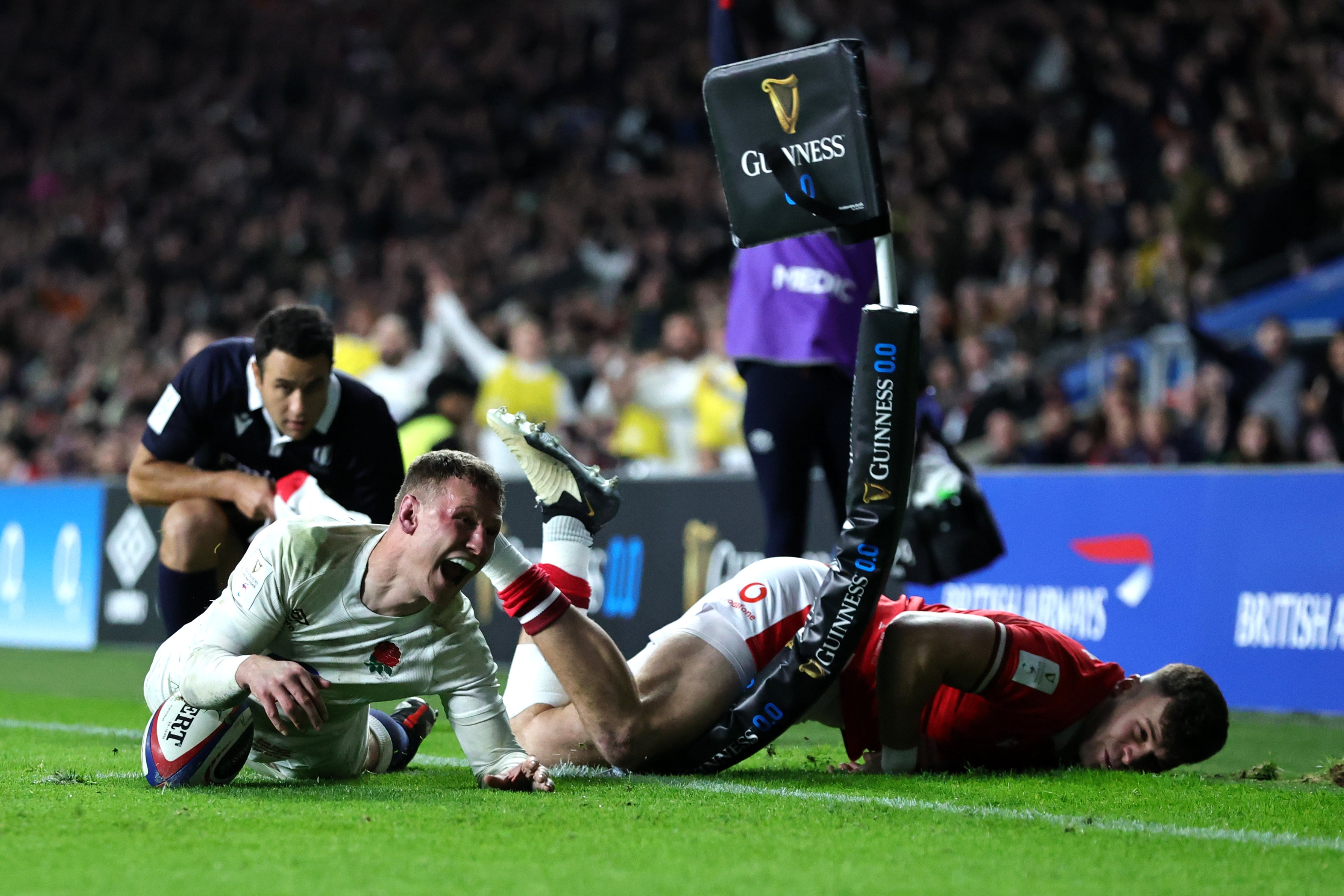’Twas George who slayed the dragon. This was hardly the stuff of legend that has made this great rivalry a Six Nations fixture of folklore but a fitful, flawed encounter always appeared likely to come down to who struck last. And it was England fly-half George Ford who found the final three, the crucial points from the tee struck nine minutes from time, the sword of Ford piercing Welsh hearts on a day where Warren Gatland’s youngsters gave England an almighty fright.
This callow unit had looked unlikely to become the first Welsh side to win on the Cabbage Patch in the Six Nations for more than a decade but gave England all they had. Indeed, but for a loss of discipline in the second half they might even have conquered England’s castle, which never became the quaking cauldron promised.
But Welsh discipline slipped at the crucial moment. Between the 21st minute of last week’s defeat to Scotland and the 42nd here, Wales had gone 101 minutes without conceding a penalty, a frankly remarkable run without blemish that gave way to a pock-marked second-half performance here.

After significant scrum-time struggles hauled England back into a contest where they trailed by nine points at half time, a brilliant Ford 50:22 flipped the field as the final 10 minutes began. England’s attempts to pounce out wide were cut short by Mason Grady’s outstretched arm. Off to the bin the replacement back went for his slapdown; Ford’s simple three then snatched victory.
There was enough here for both sides to consider a bright future. England’s much-discussed defence tightened once more after conceding 14 first-half points, one 25-phase defensive set proof of concept and progress. They will head to Murrayfield in round three rested and unbeaten.
And for Wales, this was another valiant defeat. It lacked the drama of last Saturday’s Cardiff comeback but there are building blocks here to encourage Gatland, even if the ledger reads nought from two.
It was England who began the brighter, confrontational defensively and twice cutting Wales to ribbons on kick returns in the first five minutes. Freddie Steward might have made more of his solo scythe if not for an untimely stumble, while Elliot Daly was close to connecting with Henry Slade as Steward’s sharp pass put him into space. In the tight, there were squandered opportunities, too, England twice feeding set-pieces five out from the Welsh line but unable to punch over from either lineout or scrum.

The profligacy proved predictably unwise. A seemingly innocuous tackle from Ollie Chessum on a falling Keiron Assiratti was deemed sufficiently serious for referee James Doleman to go to his pocket, the yellow card upheld on review in the TMO bunker. Five minutes later, Doleman reached again for a card, Ethan Roots having fewer complaints over his sin-binning having hauled down a rumbling mass of Welsh shirts two metres short.
The penalty try meant Wales, barely in the game, led by seven, though it wasn’t long before England had rewards of their own. Maro Itoje singlehandedly made a mess of the Welsh exit from the restart and, from the resultant scrum, a musket blast of a carry from Ben Earl punctured the Welsh defence, the No 8 reaching for the line.
But while Earl put himself about with trademark bombast, and lumberjack Sam Underhill swung his axe throughout, the best back row on the pitch by a distance was Reffell. The openside covered each and every blade of England’s patch, a breakdown nuisance par excellence now becoming an excellent attacking wing forward. And to think he might not even be starting were Jac Morgan fit – Barry John’s passing might have meant a week reminiscing about the great Welsh tens but they’ve had some handy operators in that seven shirt, too.

He had his hands all over the second Wales score, first cutting an alluring line from out to in to make a half-break, then surging onto Gareth Thomas’s sharp inside tip to breach England again. An offload to Tomos Williams, a transfer to Alex Mann, a gallop under the posts; Wales cantered down the tunnel nine points in front.
Ford gave England a much-needed foothold by knocking through three points after half-time, and their scrum went to work to continue their climb back into the game. Wales were struggling to take the weight on the engage and both Assiratti and Archie Griffin found themselves penalised repeatedly, England making simple advances up the left. After a series of phases inside the Welsh 22, space opened on the outside for Fraser Dingwall to squeeze into the corner for a first international try.

The conversion drifted by but Ford struck with his next attempt from the tee, Grady’s yellow card for a deliberate knock-on meaning Wales would play the remaining nine minutes one body short. With the aerially imperious Steward marshalling the skies, and Earl raising the ramparts, England held firm.



